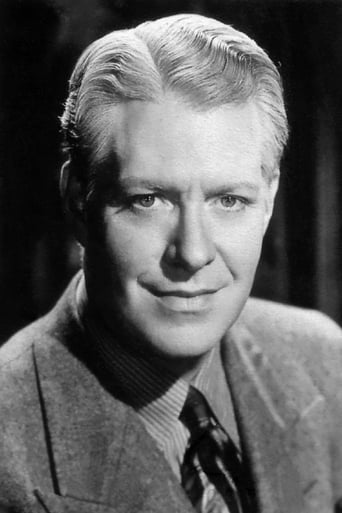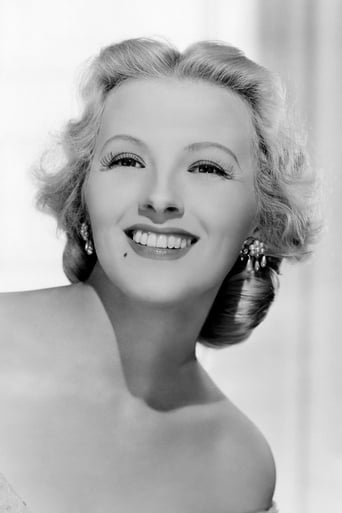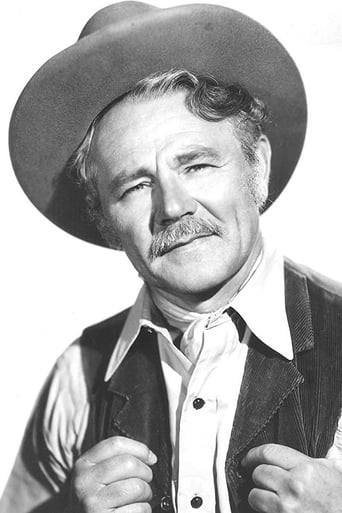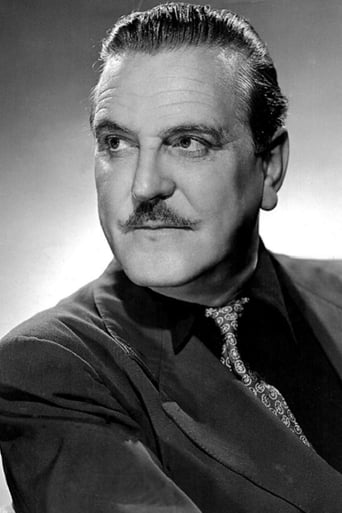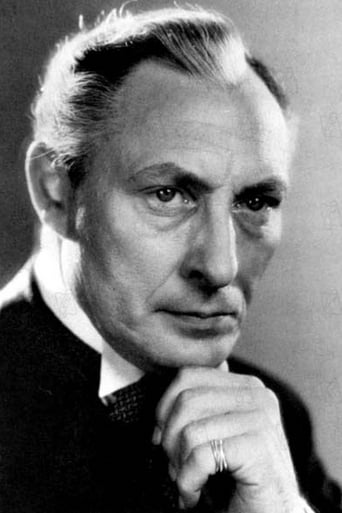VividSimon
Simply Perfect
Glimmerubro
It is not deep, but it is fun to watch. It does have a bit more of an edge to it than other similar films.
Rosie Searle
It's the kind of movie you'll want to see a second time with someone who hasn't seen it yet, to remember what it was like to watch it for the first time.
GManfred
"Balalaika" is strictly for fans of Hollywood's Golden Age. If you are one, it's got a great cast of character actors you will recognize pretty quickly and you will appreciate the singing of Nelson Eddy and Ilona Massey. If you appreciate good acting, Eddy is passable and Massey, not so. He is his usual limited self but she comes across as cold and humorless, which is the polar opposite of Jeanette MacDonald.The storyline is thin and unconvincing, sort of like "The Student Prince"; he is royalty, she is not, so he passes himself off as a peasant to win her hand. An interesting aspect of the picture is that it treats the aftermath of the Russian Revolution and the dissolution of the upper class. Here, many of Russian royalty end up in Paris after WWI in menial jobs, much to their sadness and chagrin. Can't recall the subject having been broached on film before.In short, the plot is forgettable, the cast is interesting and the music carries the day. Not for younger audiences but for those of us who appreciate Hollywood's past.
atlasmb
I found this film enjoyable for a number of reasons. First, the black and white cinematography, which contributes to the moods of the scenes. A romanticized version of Soviet Russia is presented and the lighting, scenery and music all play their parts in this portrayal.The film was released in 1939 (the golden year of cinema) and at that time, the U.S. was debating its role in the world conflict that was developing. There was a general ignorance of the Stalin atrocities and an ambivalence about Russia as ally or enemy. Portraying Russia as a victim of WWI was not unrealistic and contributed to the sympathetic depiction of the nation and its peoples.As other writers have written, Nelson Eddy acts rather stiffly. But I found his singing very enjoyable. The object of his affections, played by Ilona Massey, is rather charming and talented. THe other players were amusing and talented. The Wizard of Oz was released the same year. If anyone happened to see Balalaika and TWOZ back to back, they must have done a double take when they saw Frank Morgan in his mustache and his busby playing nearly identical roles. In Balalaika, the applicable scene is near the end of the film. In TWOZ, he played the guard to the city of Oz (among other roles). In a few (long) years--after WWII--America's view of Soviet Russia would change dramatically. Here is a view of Russia before the American public came to see Russians as enemies.
bkoganbing
This movie asks the question, can a Cossack boy and a Bolshevik girl find true happiness either in old mother Russia or the new Soviet Union?In this movie the answer is no. Nelson Eddy and Ilona Massey are attracted to each other, but background and politics strive to keep them apart.While he was at MGM, Nelson Eddy and Jeanette MacDonald did very few films with other leads and in this one Nelson gets to act with the women who he did the second amount of co-starring with. Ilona Massey cuts a fine figure as a revolutionary with her father, Lionel Atwill who is a music teacher by day and a Bolshevik by night.Nelson Eddy apparently liked Russian themes. He did two other films with Russian elements in them, The Chocolate Soldier and Northwest Passage. His singing in Russian of The Volga Boatman is the high point of Balalaika.My favorite performer in this however is Charlie Ruggles. He plays Nelson Eddy's orderly and he plays the fool quite well. He steers clear of politics, but ultimately winds up the only real winner in this movie.Not the best or the worst of Nelson Eddy's screen efforts, but enjoyable.
Arthur Hausner
I am generally a soft touch for movies that have fictional characters in a well-known historical setting, and this one is no exception. Based on a 1936 underrated musical that opened in London, and set on the eve of both World War I and the Russian revolution, it involves a Russian Prince, Nelson Eddy, and a singer and revolutionary, Ilona Massey, who deceive each other as to who they really are, and fall in love. But even after they discover their true identities, they remain in love until separated by the war and then the revolution.The sets and costumes are first-rate and director Reinhold Schunzel keeps the film moving at a nice pace and handles the crowd scenes extremely well. Mild comedy is provided by Charlie Ruggles and Frank Morgan. Although I'm not much of a fan of Nelson Eddy - he's somewhat bland in his acting - he does have a good voice, so I did enjoy lots of his singing. The stirring "Ride, Cossack, Ride" while the Cossacks are on horseback riding towards the camera, which keeps moving back to avoid a collision, is beautifully photographed. His rendition of "Silent Night" in German, while in the trenches during WW I, answering the Austrian enemy soldiers singing of that song, was a wonderful tender sequence. Eddy also sings the Toreador song from Bizet's "Carmen" which will surely will be liked by opera fans.But I loved best the last 15 minutes or so, when the Russian emigrés who have gathered in Paris after the war, meet at the Paris version of the Balalaika Cafe to celebrate the Russian New Year. Instead of the joy you would expect on such an occasion, you see the sadness in everyone's eyes at having had to leave their homeland. Frank Morgan sings about his "Land of Dreams," and it moved me to tears.

